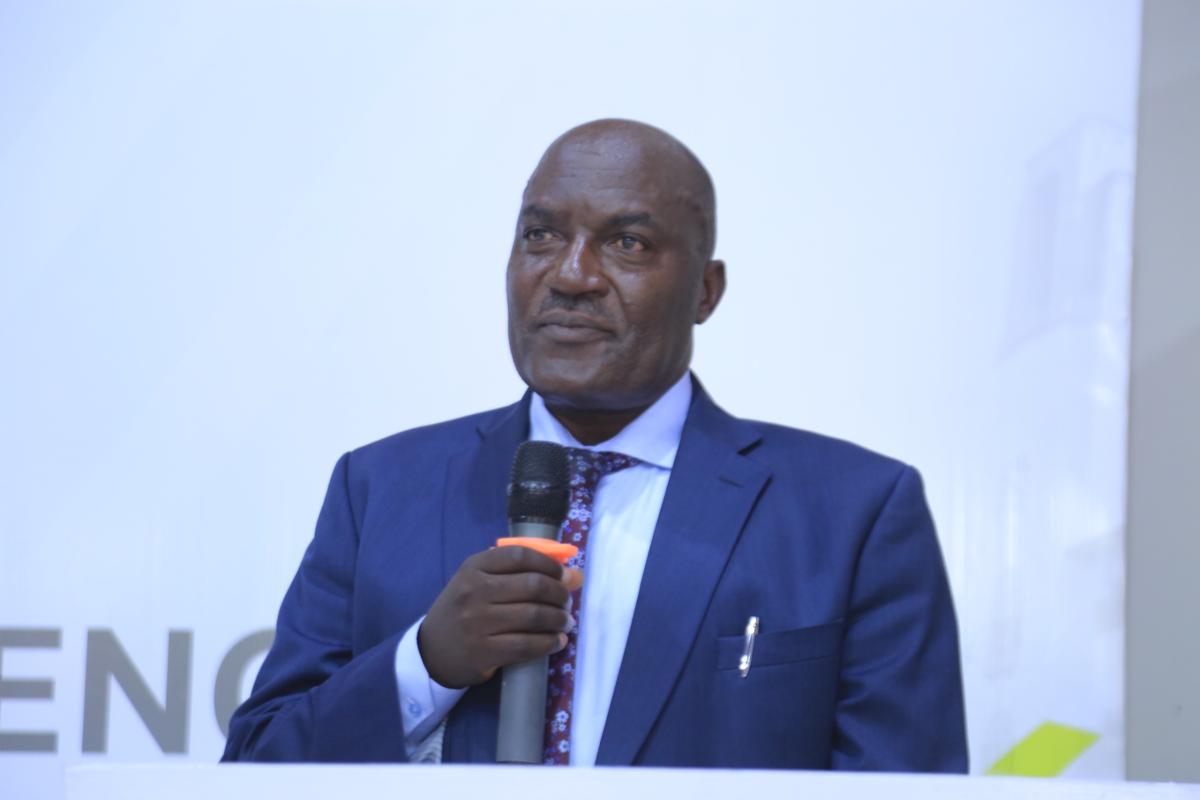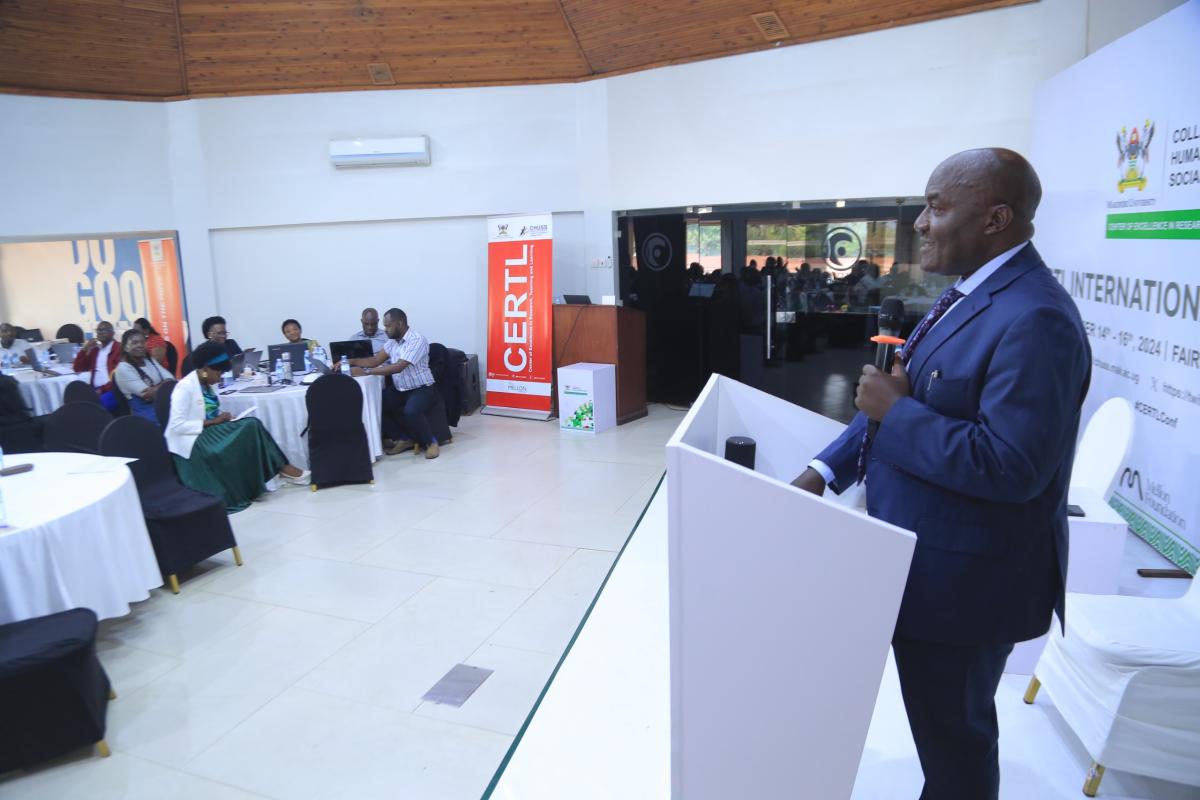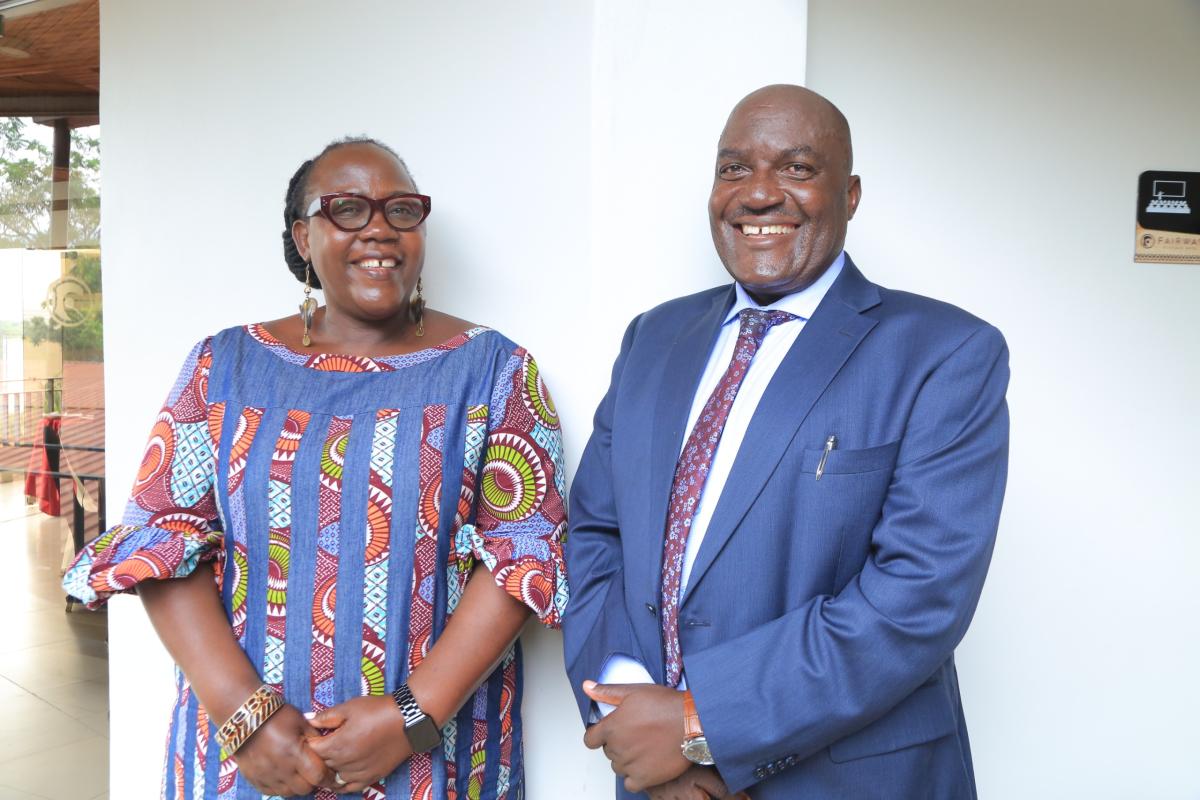
Makerere University staff have been urged to embrace collaboration, accountability, and capacity building as key strategies for winning grants under the Makerere University Research and Innovation Fund (RIF). Speaking on the second day of the CHUSS CERTL International Conference at Fairway Hotel on 15th November 2024, Prof. Fred Masagazi-Musaazi, Chair of the Mak RIF Grants Management Committee, emphasized the need to eliminate the “Pekeyangu” culture—where researchers work individually—and instead foster teamwork and partnerships.
Prof. Masagazi encouraged staff to form inter-college and institutional research teams, as well as collaborate with national public and private organizations in crafting proposals. He underscored the value of drawing diverse expertise from different sectors to enhance competitiveness and innovation. “Working alone must stop. Let’s prioritize teamwork and include diverse expertise in grant writing,” he said, adding that partnerships with external stakeholders, including government institutions and private sector players, were critical to winning grants.

In his presentation titled Makerere Research and Innovation Fund: Opportunities and Challenges in the 21st Century, Prof. Masagazi highlighted the importance of timely accountability for disbursed funds. He warned that management would blacklist staff members who failed to provide proper accountability.
Addressing the performance of colleges in grant proposal submissions, Prof. Masagazi observed that humanities-based disciplines were underperforming compared to other colleges, such as the College of Health Sciences and Makerere University Business School. He called on the College of Humanities and Social Sciences (CHUSS) to actively participate in the ongoing sixth call for proposals, set to close in a few weeks, urging them to leverage their potential and submit competitive projects.
The RIF committee, he said, plans to provide special consideration for staff who have applied unsuccessfully for grants in the past, giving them an additional opportunity to benefit from funding.
Prof. Masagazi commended CHUSS for organizing forums to discuss research, teaching, and learning. He reaffirmed the committee’s commitment to supporting such initiatives, particularly those that promote impactful research and broaden collaborations with stakeholders from the Global North and South. He also encouraged staff to adopt a multidisciplinary approach to research and proposal development, stating that working with diverse stakeholders enhances the communication of research findings to broader audiences.
Reflecting on Makerere University’s seven-year journey in establishing RIF, Prof. Masagazi lauded the Ugandan government for its commitment to funding high-quality research aimed at transforming lives. RIF currently operates with a budget of UGX 30 billion, and Prof. Masagazi expressed hope that CHUSS could secure a significant portion of this funding for its projects.

He noted that some of the most impactful RIF-funded projects have emerged from CHUSS, including Prof. Dominic Dipio’s research on Uganda’s cultural heritage, which garnered significant global attention, and Dr. Esuruk Robert’s study on cross-border conflicts and peacebuilding in Uganda. Additionally, Prof. Edith Natukunda developed teaching resources that have transformed French language education in Ugandan schools, while other projects have advanced the digitalization of academic programs and supported commercialization of innovations.
Prof. Masagazi outlined several strategies for maximizing RIF’s impact, including mobilizing alternative funding sources from international donors and local partners. He revealed plans to create a dedicated funding slot for individuals who have applied unsuccessfully multiple times, ensuring greater inclusivity and opportunities for all researchers. However, he emphasized that maintaining high-quality proposals would remain a priority.
The professor called on CHUSS to leverage its expertise in areas such as tourism, culture, linguistics, and indigenous knowledge to influence national policy and contribute to socio-economic transformation. He encouraged research that integrates traditional knowledge with contemporary practices, fosters cultural development, and explores new frontiers in entertainment, sports, and linguistics.
Prof. Masagazi also addressed the transparency and effective proposal evaluation and consistencies in scoring by reviewers urging staff to strengthen their research capacity to meet competitive standards. He called on senior academics to mentor junior colleagues and include them in research teams, emphasizing the need to eliminate biases against humanities research and ensure equal opportunities across disciplines.

In closing, Prof. Masagazi reaffirmed the committee’s commitment to supporting research efforts across Makerere University. “Accountability, collaboration, and capacity building are crucial. Let us build strong research teams, submit timely proposals, and deliver transformative research for the benefit of Uganda and beyond,” he said.
The Makerere University Research and Innovation Fund, established in 2019, aims to produce high-quality research aligned with national development priorities. The sixth call for proposals remains open, presenting an opportunity for researchers to secure funding and contribute to Uganda’s socio-economic transformation.
